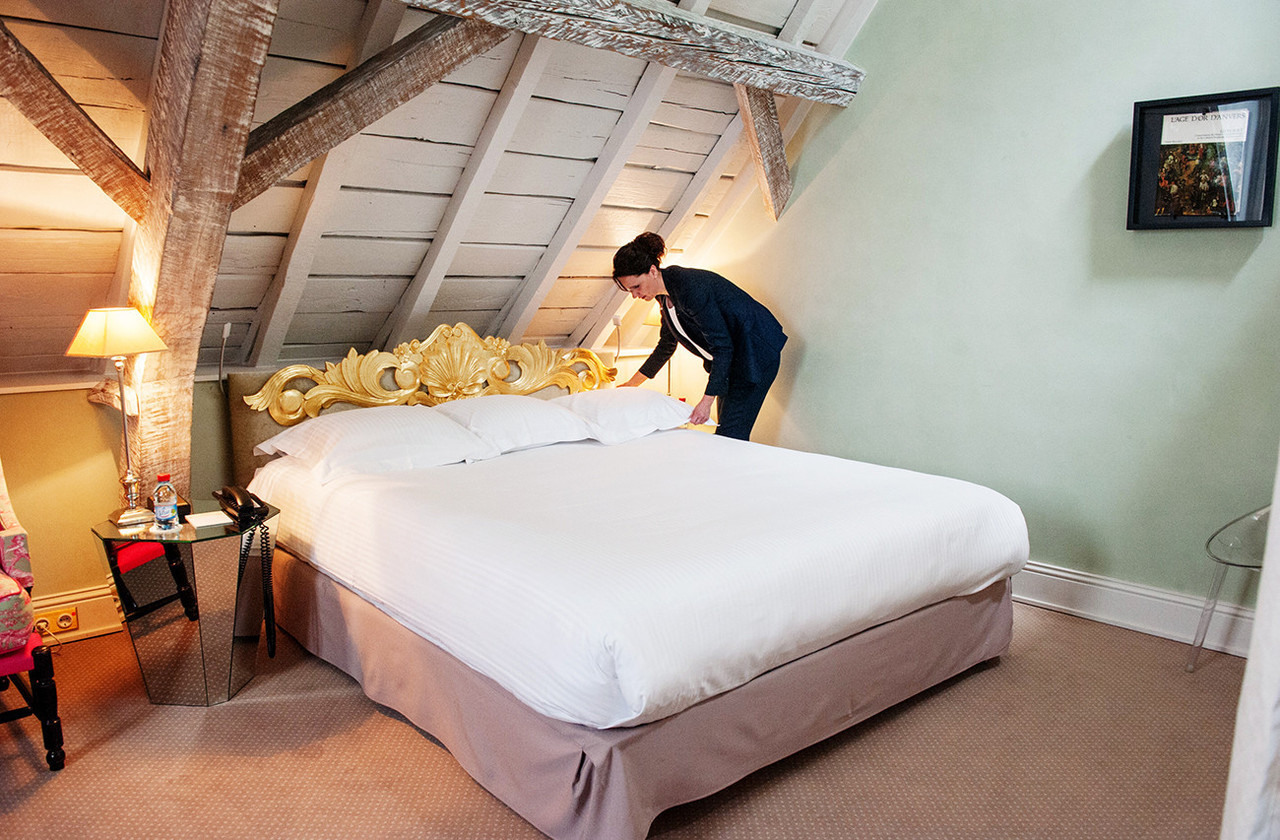The at Hamilius, the Marriott Hotel Alfa opposite the railway station and the Anatura in Weiswampach are all slated to be finished this year, bringing a total of at least 326 new rooms to the market.
The hotel industry is certainly continuing to develop in Luxembourg despite the post-pandemic context. On the one hand, the leisure industry has made a strong comeback after two years of pandemic and a marked inclination towards local tourism. On the other hand, the business clientele that requires rooms during the week is also back, though with less intensity. The development of videoconferencing tools and environmental awareness are slowing down the recovery in this segment.
Luxembourg currently has 223 hotels and 7,678 rooms. Does it need more capacity?
Yes, says tourism minister (DP), who points out that, “before the crisis, during conferences in Luxembourg City, there were difficulties in finding available hotel rooms and guests were sometimes forced to go beyond the borders.”
In 2021, 1.26m tourist nights were recorded in Luxembourg, 69% of which were in the central region. This region contains 42% of the country’s accommodation structures and 60% of its rooms.
We are wondering about the weekends: will there be an oversupply and an impact on prices?
“We are delighted with the opening of new establishments; it is a logical development to meet the demand for rooms during conferences and events. However, we are wondering about the weekends: will there be an oversupply and an impact on prices?” says , secretary general of the Horesca federation.
Mixing of genres
Complicating the scene are private accommodation options. Ads for rooms, studios or flats are everywhere on the Booking.com portal, which was initially focused on hotels. On Airbnb, hotel rooms in Luxembourg are listed alongside self-catered rooms and private residences for rent.
“Airbnb is unfair competition,” says , general manager of the Le Royal hotel. Koepp, who the bill on the reform of the right of establishment come into force, agrees.
Then there is the development of unusual accommodations like , a niche market but one that targets the leisure clientele.
“Luxembourg for Tourism is doing what is necessary to attract new visitors and to acquire new markets. I am thinking in particular of Switzerland but also of neighbouring countries within a radius of 300km,” comments Koepp.
The pipeline
In any case, the appetite for new hotel projects doesn’t seem to be drying up: in total, almost 1,000 new rooms are foreseen in Luxembourg in the near future. In 2024, a whole host of new projects should be completed, chief among them the at the airport and in Wickrange. The following year, B&B is expected at the Cloche d’Or with 150 rooms, and Kaempff-Kohler is expected to open its boutique hotel in the city centre.
Despite the attention paid to large-scale projects, smaller hotels are also being developed: for instance, the Villa Baldauff is to be converted into a 5-star hotel. Other projects further away on the horizon include a hotel as part of a project underway in the Grünewald district of Kirchberg, and another one planned in the Codic development on in the Cloche d’Or.
“There is still a lack of hotel capacity in the region, so it is important for us to develop capacities in rural areas,” insists Delles. The Ardennes currently has 52 hotels, inns and boarding houses. This is twice as many as the Mullerthal, while the Moselle has 21, according to Statec data.
This article in Paperjam. It has been translated and edited for Delano.

